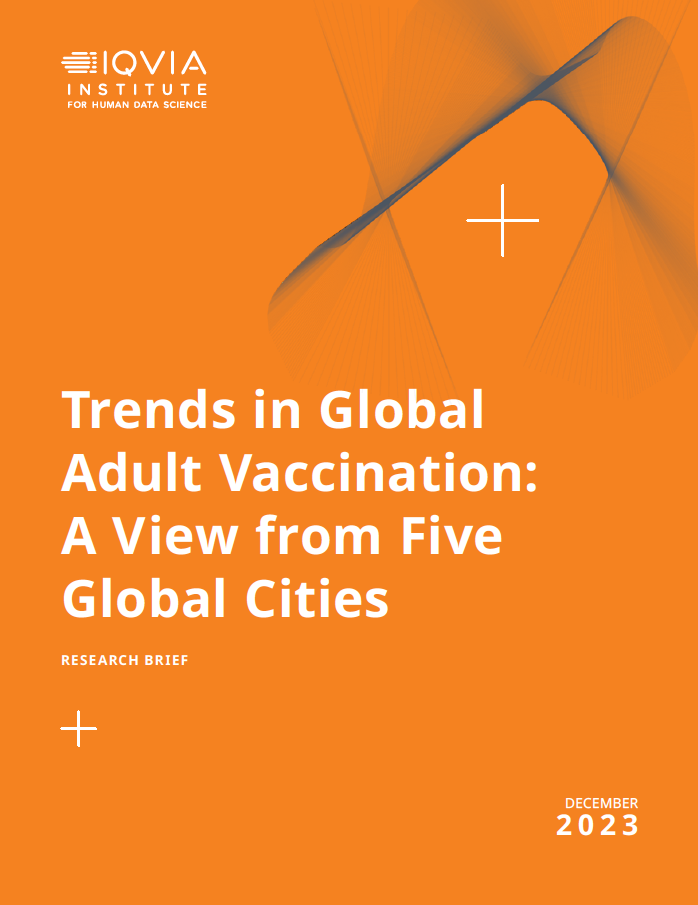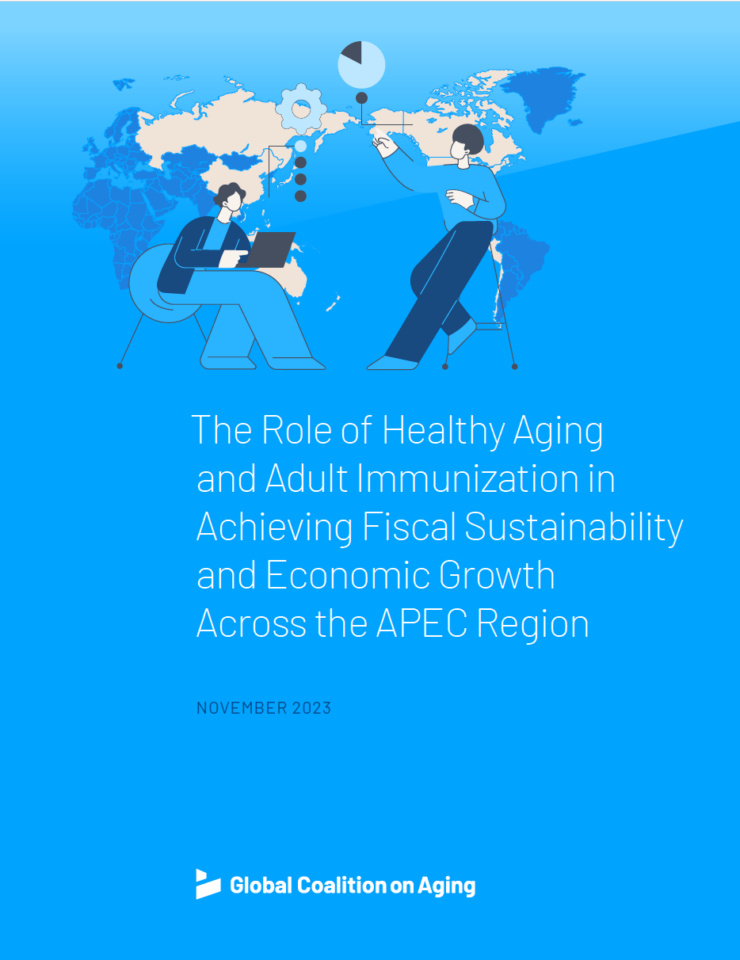
Stay Ahead of The Curve
Keep up with rapidly developing perspectives on aging via our curated news and events feed.
-
 GSK, in collaboration with the Global Coalition on Aging (GCOA), announced a new report from the IQVIA Institute for Human Data Science (IQVIA Institute). The report, funded by GSK, explores the role of social and structural determinants of health in adult vaccine access and uptake across five global cities with strong data about their aging populations: Bangkok, Thailand; Brussels, Belgium; Chicago, US; Manchester, United Kingdom; and New York City, US.
GSK, in collaboration with the Global Coalition on Aging (GCOA), announced a new report from the IQVIA Institute for Human Data Science (IQVIA Institute). The report, funded by GSK, explores the role of social and structural determinants of health in adult vaccine access and uptake across five global cities with strong data about their aging populations: Bangkok, Thailand; Brussels, Belgium; Chicago, US; Manchester, United Kingdom; and New York City, US. -
 As leaders from across the Asia-Pacific Economic Cooperation (APEC) region convene in San Francisco over the next week, a new report from the Global Coalition on Aging (GCOA) points to investments in healthy aging as a growing economic imperative amid the region’s changing demographics. According to the new report, programs that keep populations healthy, active, and productive – like adult immunization – are increasingly becoming a prerequisite for economic stability and growth.
As leaders from across the Asia-Pacific Economic Cooperation (APEC) region convene in San Francisco over the next week, a new report from the Global Coalition on Aging (GCOA) points to investments in healthy aging as a growing economic imperative amid the region’s changing demographics. According to the new report, programs that keep populations healthy, active, and productive – like adult immunization – are increasingly becoming a prerequisite for economic stability and growth. -

The novel program, built for and by the community, is organized by the Global Coalition on Aging with support from Novartis BALTIMORE, MARYLAND, USA, October 29, 2023 /EINPresswire.com/ — Today leaders from Baltimore joined with the Global Coalition on Aging (GCOA) to launch engAGE with Heart, a community health initiative dedicated to sustainable risk reduction,…
-
“We’re sad to learn of the passing of Senator Feinstein,” said Michael Hodin, CEO of the Global Coalition on Aging. “At 90, her long service and leadership exemplifies the best of America. It also underscores the lasting contribution to society unlocked by our new normal – longevity. We now have the science, medicine, technology, and…
-

As societies get older, chronic kidney disease is growing as a leading cause of death. Yet, there is a disturbing lack of attention or understanding, even among those at higher risk New York, New York – September 6, 2023 – The Global Coalition on Aging (GCOA) – The World’s Leading Business Voice on Aging today…
Claim your seat at the table


 Global Coalition On
Global Coalition On